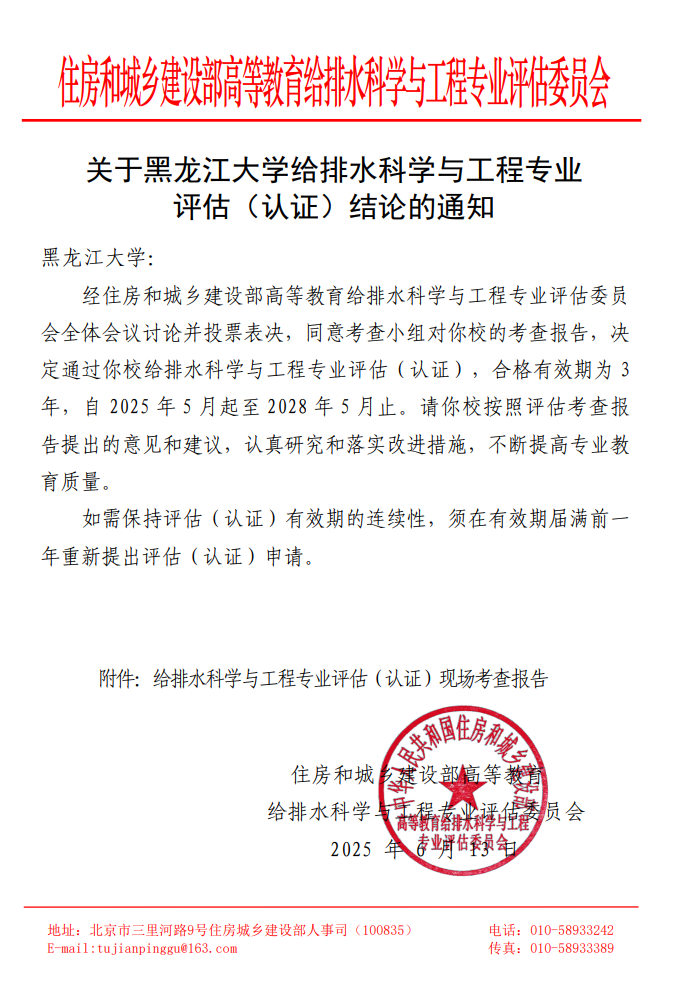Recently, the Higher Education Accreditation Committee for Water Supply and Drainage Science and Engineering under the Ministry of Housing and Urban-Rural Development (MOHURD) issued the Notice on the Accreditation Outcome for Heilongjiang University’s Water Supply and Drainage Science and Engineering Program. The program has successfully passed its first professional accreditation, becoming the university’s first MOHURD-accredited discipline. MOHURD’s professional accreditation operates within the framework of the Engineering Education Accreditation System and follows the guidance of MOHURD, the Ministry of Education, and the China Engineering Education Accreditation Association.

The university prioritized this accreditation process, providing strong support through policy safeguards and dedicated funding. To prepare for the on-site evaluation, the President’s Office and Academic Affairs Office spearheaded a task force with relevant departments and the School of Civil Engineering and Architecture. Through meticulous organization, coordinated planning, and collaborative efforts, the team laid a solid foundation for the program’s successful accreditation. During the on-site review, the expert panel attended classes, examined teaching materials, and held discussions with faculty, students, and administrative staff. They thoroughly evaluated the program’s operations and highly commended its talent cultivation quality and distinctive features.
This successful accreditation not only validates the program’s educational effectiveness and industry recognition but also marks a pivotal opportunity for its high-quality development. It sets a benchmark for the university’s engineering education accreditation initiatives. The accredited program must now utilize the assessment report’s recommendations to implement concrete improvements in curriculum optimization, faculty development, and practical training enhancement—continuously elevating talent cultivation quality while strengthening program distinctiveness.
Leveraging this achievement, the university will advance its engineering education accreditation efforts, steadfastly implementing the principles of student-centered, outcome-oriented, and continuous improvement. By aligning with accreditation standards, we will deepen educational reforms, strengthen disciplinary substance, and consistently enhance talent cultivation outcomes—driving greater momentum for the university’s high-quality development.


 0451-86608114
0451-86608114 0451-86608114
0451-86608114 No. 74 Xuefu Road, Harbin City, Heilongjiang Province
No. 74 Xuefu Road, Harbin City, Heilongjiang Province